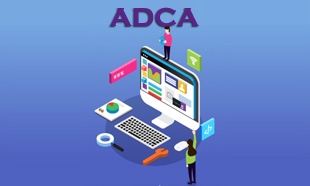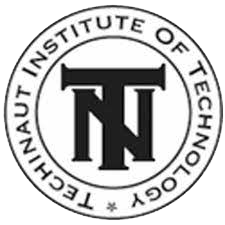ADVANCE DIPLOMA IN COMPUTER APPLICATION
Verma Computer Institute, a Techinaut Institute of Technology franchise, is a renowned computer education center situated in Hazratganj, Lucknow, Uttar Pradesh. This comprehensive analysis focuses on the one-year Advanced Diploma in Computer Application (ADCA) course offered by Verma Computer Institute. The course covers various topics for building a solid foundation in computer science and technology.
COURSE OVERVIEW:
The ADCA course is meticulously designed to provide students with in-depth knowledge and practical skills in various aspects of computer application. Over one year, students undergo intensive training in fundamental concepts and advanced computer science techniques. The curriculum encompasses multiple subjects, including computer basics, computer appreciation, computer organization, operating systems, MS Office applications, information technology, internet fundamentals, e-mail communication, programming introduction, and problem-solving algorithms.
Module 1: Basics of Computer
The course begins with an introduction to the fundamental concepts of computing. Students learn about the history of computers, components of a computer system, input and output devices, storage devices, and data representation. Emphasis is placed on understanding the evolution of computers and their significance in modern society.
Module 2: Computer Appreciation
In this module, students gain an appreciation for computers' capabilities and applications in various fields, such as business, education, healthcare, and entertainment. They learn about technology's impact on daily life and explore computers' role in enhancing productivity and efficiency.
Module 3: Computer Organization
In this module, students delve into the internal structure and organization of computers. Topics covered include CPU architecture, memory hierarchy, storage systems, and input/output mechanisms. Through theoretical lectures and hands-on exercises, students develop a deeper understanding of how computers function at the hardware level.
Module 4: Operating System
This module introduces students to different operating systems and their functions. They learn about operating systems' roles in managing hardware resources, providing user interfaces, and facilitating software execution. Practical sessions focus on operating system installation, configuration, and basic troubleshooting.
Module 5: MS Word Processing
Students are introduced to Microsoft Word, a widely used word-processing application. They learn how to create, edit, format, and customize documents such as letters, reports, resumes, and newsletters. Advanced features such as mail merge, templates, and collaboration tools are also covered.
Module 6: MS Spreadsheet Package
Microsoft Excel, a powerful spreadsheet application, is the focus of this module. Students acquire skills in creating, formatting, and analyzing data using spreadsheets. They learn to perform calculations, create charts and graphs, and use functions and formulas to automate tasks.
Module 7: MS Presentation Package
This module covers Microsoft PowerPoint, a popular presentation software. Students learn to design and deliver effective presentations using multimedia elements such as text, images, audio, and video. Topics include slide layout, animation, transition effects, and audience engagement techniques.
Module 8: Information Technology and Society
In this module, students explore the societal impact of information technology. They examine ethical, legal, and social issues related to technology use, including privacy concerns, intellectual property rights, cybercrime, and the digital divide. Case studies and discussions help students understand the broader implications of technology on individuals and communities.
Module 9: Introduction to the Internet
This module provides an overview of the Internet and its underlying technologies. Students learn about Internet protocols, domain names, web browsers, search engines, and online services. They also explore the evolution of the Internet and its role in facilitating communication, collaboration, and information exchange.
Module 10: Internet Network
In this module, students delve deeper into Internet networking concepts. They study the Internet's architecture, including the client-server model, TCP/IP protocol suite, and network topologies. Practical exercises involve configuring network settings, troubleshooting connectivity issues, and securing network communications.
Module 11: E-mail
E-mailThis module focuses on e-mail communication. Students learn how to create and manage e-mail accounts, compose and send messages, organize mailboxes, and use e-mail etiquette. They also explore advanced features such as attachments, filters, and security measures.
Module 12: Introduction to Programming
Students are introduced to the basics of programming in this module. They learn about programming languages, syntax, variables, data types, control structures, and functions. Practical coding exercises help students develop problem-solving skills and logical thinking abilities.
Module 13: Algorithms for Problem Solving
This module covers algorithmic problem-solving techniques. Students learn to analyze problems, design algorithms, and implement solutions using pseudocode and flowcharts. They explore algorithms for sorting, searching, recursion, and dynamic programming, gaining proficiency in algorithmic thinking and problem-solving strategies.
CONCLUSION:
The Advanced Diploma in Computer Application (ADCA) course offered by Verma Computer Institute equips students with comprehensive knowledge and practical skills in various computer science and technology areas. Students gain proficiency in essential software applications, programming concepts, internet technologies, and problem-solving techniques through a well-structured curriculum and hands-on training. Graduates of the ADCA course are well-prepared to pursue careers in diverse fields such as software development, IT support, data analysis, and digital marketing.
 DIPLOMA IN COMPUTER APPLICATION (ITGUR)
1 × ₹7,000.00
DIPLOMA IN COMPUTER APPLICATION (ITGUR)
1 × ₹7,000.00  DIPLOMA IN COMPUTER APPLICATION (PACC)
1 × ₹3,200.00
DIPLOMA IN COMPUTER APPLICATION (PACC)
1 × ₹3,200.00  COMPUTER TYPING (VITA)
1 × ₹3,200.00
COMPUTER TYPING (VITA)
1 × ₹3,200.00  ADVANCE DIPLOMA IN FINANCIAL APPLICATION (VITA)
1 × ₹3,200.00
ADVANCE DIPLOMA IN FINANCIAL APPLICATION (VITA)
1 × ₹3,200.00 

